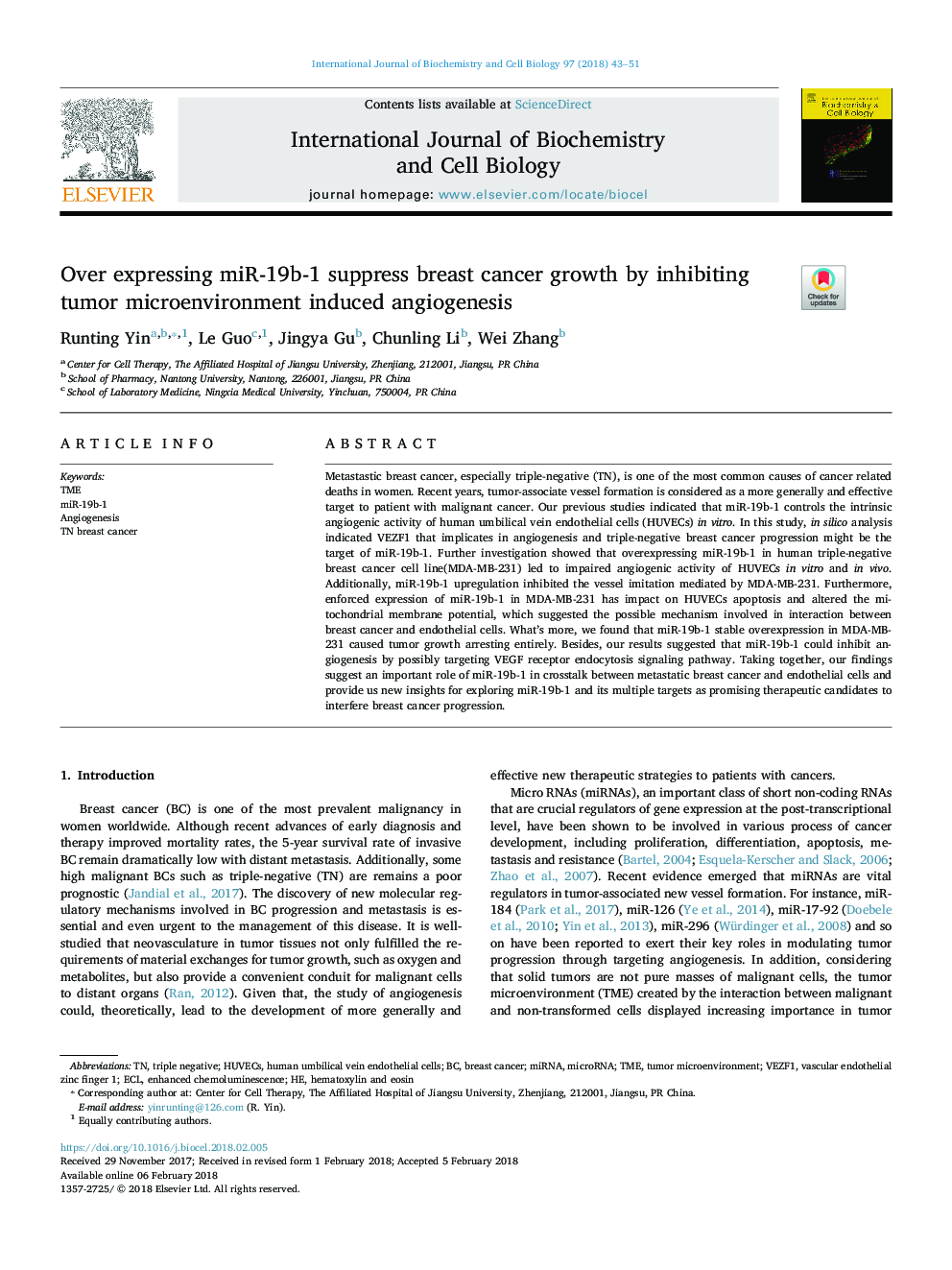| Article ID | Journal | Published Year | Pages | File Type |
|---|---|---|---|---|
| 8322022 | The International Journal of Biochemistry & Cell Biology | 2018 | 9 Pages |
Abstract
Metastastic breast cancer, especially triple-negative (TN), is one of the most common causes of cancer related deaths in women. Recent years, tumor-associate vessel formation is considered as a more generally and effective target to patient with malignant cancer. Our previous studies indicated that miR-19b-1 controls the intrinsic angiogenic activity of human umbilical vein endothelial cells (HUVECs) in vitro. In this study, in silico analysis indicated VEZF1 that implicates in angiogenesis and triple-negative breast cancer progression might be the target of miR-19b-1. Further investigation showed that overexpressing miR-19b-1 in human triple-negative breast cancer cell line(MDA-MB-231) led to impaired angiogenic activity of HUVECs in vitro and in vivo. Additionally, miR-19b-1 upregulation inhibited the vessel imitation mediated by MDA-MB-231. Furthermore, enforced expression of miR-19b-1 in MDA-MB-231 has impact on HUVECs apoptosis and altered the mitochondrial membrane potential, which suggested the possible mechanism involved in interaction between breast cancer and endothelial cells. What's more, we found that miR-19b-1 stable overexpression in MDA-MB-231 caused tumor growth arresting entirely. Besides, our results suggested that miR-19b-1 could inhibit angiogenesis by possibly targeting VEGF receptor endocytosis signaling pathway. Taking together, our findings suggest an important role of miR-19b-1 in crosstalk between metastatic breast cancer and endothelial cells and provide us new insights for exploring miR-19b-1 and its multiple targets as promising therapeutic candidates to interfere breast cancer progression.
Keywords
Related Topics
Life Sciences
Biochemistry, Genetics and Molecular Biology
Biochemistry
Authors
Runting Yin, Le Guo, Jingya Gu, Chunling Li, Wei Zhang,
